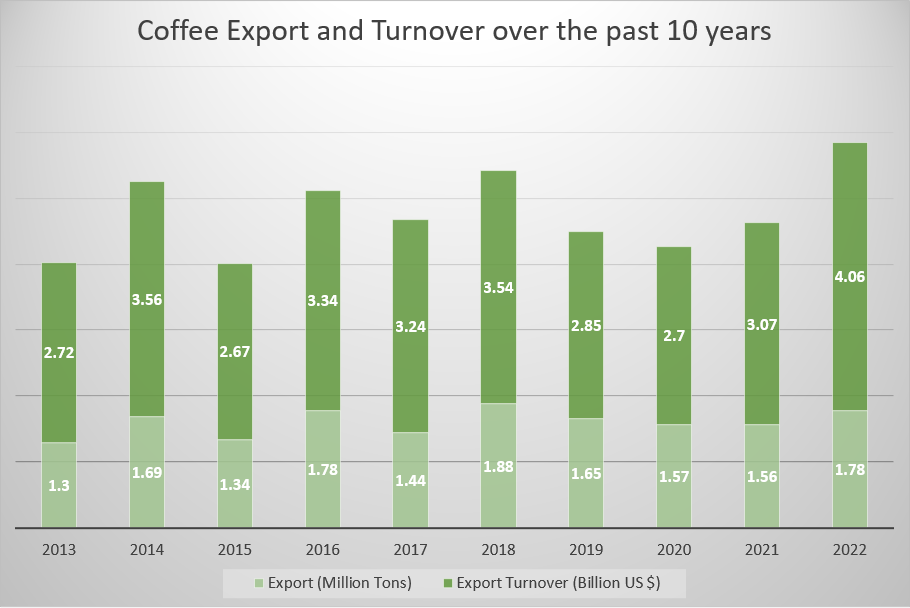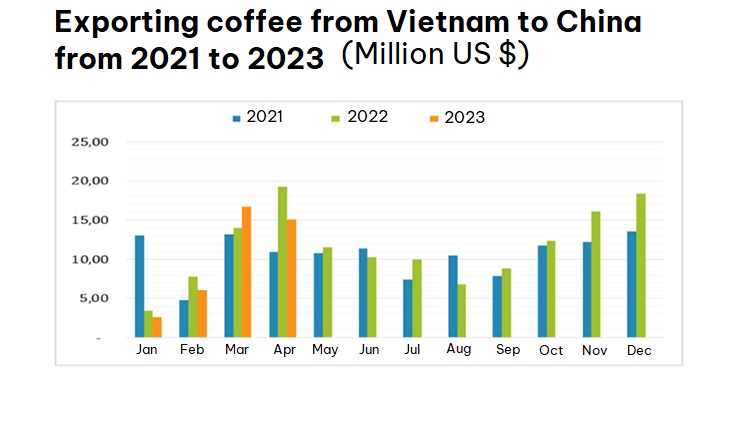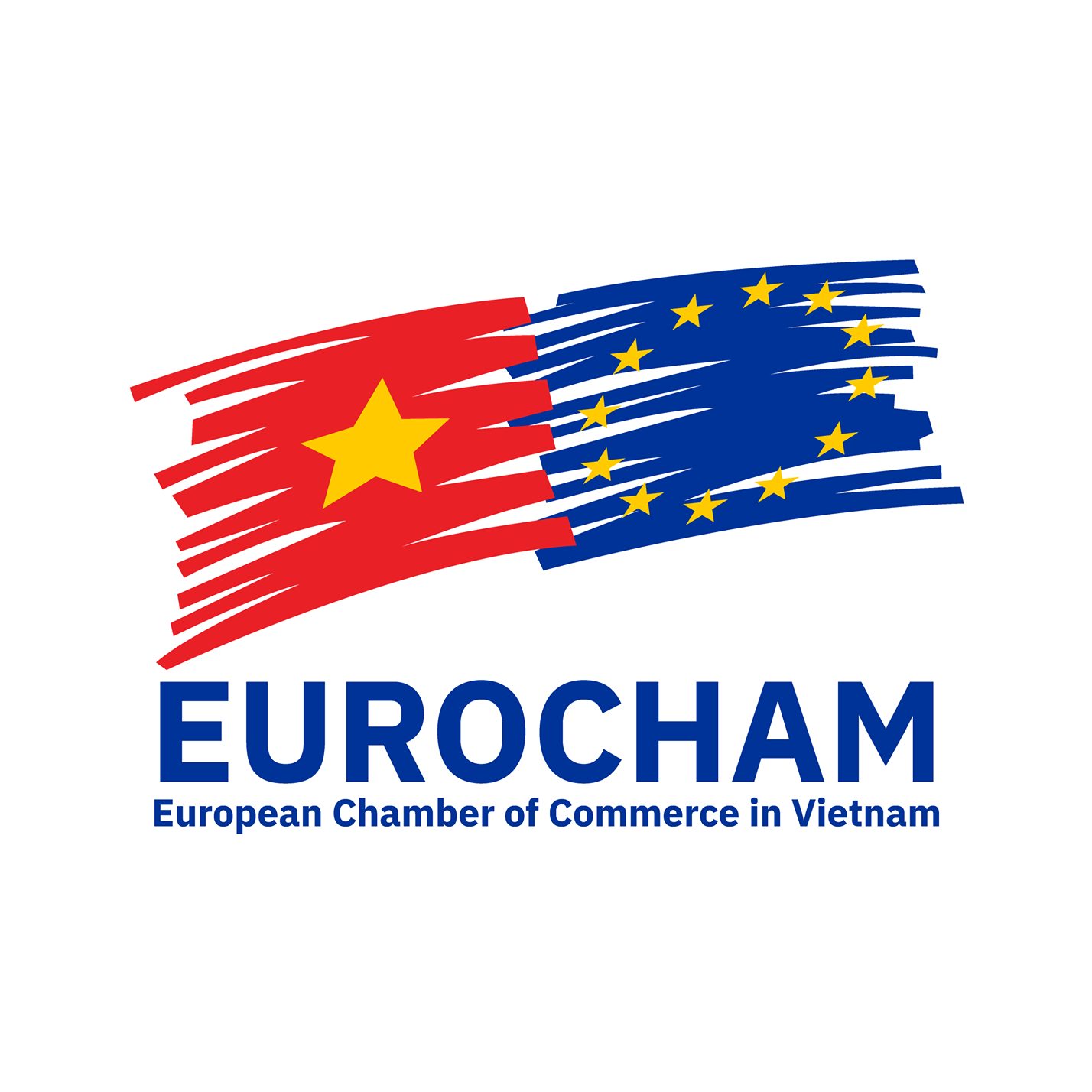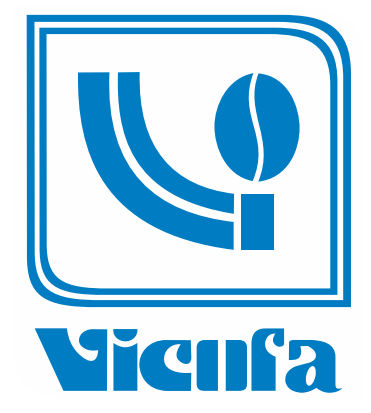
Coffee is a major agricultural product of Vietnam, ranking second globally in terms of manufacturing output and exports. China is a promising market for Vietnamese coffee, with steadily growing consumer demand. To ensure successful coffee exports to China, Vietnamese businesses must grasp the current situation, criteria, and experiences involved in the export process. In this article, VICO Logistics will furnish you with valuable insights on this matter.
1. The current status of coffee export from Vietnam to China.
1.1 An overview of Vietnam's coffee export
According to the Vietnam Coffee Cocoa Association (VICOFA), in 2022, Vietnam's coffee export reached approximately 1.51 million tons, valued at 2.7 billion USD, marking an 8.8% decrease in volume and a 7% decrease in value compared to the same period the previous year. The decline reasons is the Covid-19 pandemic, fluctuations in global coffee prices, and rising transportation costs.
Vietnam predominantly exports Robusta coffee in raw form (coffee beans), accounting for about 90% of the total export volume. The main export markets for Vietnam include the United States, Germany, Italy, Belgium, Japan, South Korea, and China.

Source: MXV
1.2 The actual status of coffee export to China
China imports coffee from various countries including Brazil, Ethiopia, Colombia, and Vietnam. In 2022, Vietnam accounted for 6.91% of China's total coffee imports. According to VICOFA, China was Vietnam's tenth largest coffee export market in 2020, with approximately 62% of the total export value being processed coffee.
As per the General Department of Customs, Vietnam's coffee export to China during the first four months of 2023 reached 13.42 thousand tons, valued at 40.38 million USD, indicating a 7.4% decrease in volume and a 9.3% decrease in value compared to the same period in 2022.
The average export price of Vietnamese coffee to the Chinese market during the first four months of 2023 was 3,006 USD per ton, showing a 2.1% decrease compared to the same period in 2022. Vietnamese coffee primarily remains Robusta coffee in raw form, with lower value compared to more processed coffee variations (such as roasted, ground, and instant coffee).

Source: VNBusiness
2. Criteria and Procedures for Coffee Export from Vietnam to China
2.1 Criteria for Coffee Export to China
2.1.1 Quality Requirements and Standards for Coffee
Coffee intended for export to China must meet the stipulated quality and standards requirements. Specifically, as follows:
Robusta coffee, Unwashed, Grade 1, screen 18:
- Moisture content not exceeding 12.5%
- Black and broken beans not exceeding 2%
- Foreign matter not exceeding 0.5%
- Moldy beans not exceeding 0.5%
- At least 90% of beans must pass through screen size 18 (7.1mm)
Robusta coffee, Unwashed, Grade 2, screen 16:
- Moisture content not exceeding 12.5%
- Black and broken beans not exceeding 5%
- Foreign matters not exceeding 1%
- Moldy beans not exceeding 0.5%
- At least 90% of beans must pass through screen size 16 (6.3mm)
Robusta coffee, Unwashed, Grade E, screen 13:
- Moisture content not exceeding 13%
- Black and broken beans have no set limit
- Foreign matter has no set limit
- Moldy beans have no set limit
- At least 90% of beans must pass through screen size 13 (5.0mm)
Robusta coffee, Unwashed, Grade E, screen 16:
- Moisture content not exceeding 13%
- Black and broken beans have no set limit
- Foreign matter has no set limit
- Moldy beans have no set limit
- At least 90% of beans must pass through screen size 16 (6.3mm)
2.1.2 Legal Regulations and Certification Standards
Coffee, not falling under the list of goods requiring an export license, is exempt from the export license according to Circular No. 04/2014/TT-BTC dated January 27, 2014.
Coffee Export to China must follow the legal regulations and certification standards set by China as follows:
Coffee exported to China must undergo inspection and supervision by the General Administration of Customs of China (GACC). Coffee export businesses must possess a Phytosanitary Certificate issued by the Plant Protection Department of Vietnam (PPD) or a Food Safety Certificate issued by the Vietnam Food Administration (VFA) or a Certificate of Free Sale issued by Vietnam which allows Vietnam exporters sales their coffee in China market.
Coffee exported to China must comply with China's Pollutant Limit Standards, including regulations regarding heavy metal content, microorganisms, molds, fungi, pesticides, antibiotics, and preservatives. Enterprises must hold a Quality Inspection Certificate from reputable testing organizations.
Coffee must follow China's standards for labels and packaging, which cover aspects such as size, color, shape, language, content, and where the information is placed. Enterprises must possess a Trademark Registration Certificate issued by the China National Intellectual Property Administration (CNIPA).
2.2 Coffee Export Procedures from Vietnam
2.2.1 Required Certificates and Documents
To export coffee from Vietnam to China, businesses need to prepare the following certificates and documents:
- Import-export documents
- Quality Inspection Certificate
- Phytosanitary Certificate
- Health Certificate /Sanitation or Certificate of Freesale
- Trademark Registration Certificate
- Customs Declaration Form
- Export Tax Declaration Form
- Value Added Tax Declaration Form
- Other requested documents by the importer
2.2.2 Time and Export Limitations for Coffee Export
The timeframe for exporting coffee from Vietnam to China depends on various factors, including:
Transportation method: It can be by sea, air, or rail, each with different timeframes and costs.
Customs procedures: Completing customs procedures in both countries, including declaration, inspection, tax payment, and obtaining import-export licenses, may take 1 to 3 days.
Additionally, there are certain limitations for coffee export from Vietnam to China:
Quantity limits: Coffee is subject to China's trade protection measures, resulting in import quantity limitations.
Type limitations: Vietnam primarily produces Robusta coffee, while China has higher demand for Arabica coffee. It makes it challenging for Vietnamese coffee to compete with Arabica-producing countries like Brazil, Colombia, and Ethiopia.
Quality limitations: Vietnamese coffee lacks investment in deep processing, enhancing quality, and adding value to the product. Consequently, Vietnamese coffee faces difficulties in meeting the increasing demands of Chinese consumers.
3. Experience in Successful Coffee Export to China
In order to ensure successful coffee export to China, Vietnamese businesses should consider the following experiences:
Market Research: Thoroughly understand the Chinese market, including consumer demands, trends, preferences, behaviors, and habits.
Choose Reliable Partners: Seek and partner with experienced entities familiar with the Chinese market, such as importers, distributors, retailers, agents, and trade support organizations.
Enhance Product Quality and Value: Invest in deep processing, elevate the quality, and increase the value of coffee products. Utilize modern, advanced, and environmentally friendly technologies in production, harvesting, processing, and preservation.
Brand Building and Identity: Craft attractive, innovative labeling and packaging designs that align with Chinese culture. Utilize online sales channels and social media to engage with Chinese consumers.
By implementing these strategies, Vietnamese coffee businesses can optimize their chances for successful coffee export to China.

4. VICO Logistics and the Potential of Vietnamese Coffee Export to China
4.1 The Potential of the Chinese Market
China stands as a promising market for coffee export from Vietnam due to several factors:
- With a large population, high per capita income, and improving living standards, China presents a massive and diverse consumer base for coffee products.
- China's coffee consumption demand is steadily growing and surpasses that many other nations. In 2022, the average individual coffee consumption in China reached 2.5 kg, marking a notable 7.1% rise compared to the figures in 2021.
- China exhibits diverse tastes, preferences, and consumption behaviors related to coffee, embracing a wide range of coffee varieties.
4.2 VICO Logistics' Role in Boosting Coffee Export
VICO Logistics specializes in providing comprehensive transportation solutions for import-export businesses. VICO contributes to advancing Vietnamese coffee export to China through the following reasons:
- VICO Logistics possesses an expansive and flexible transportation network and office coverage across the Indochina region. It efficiently transports goods from central Vietnamese coffee-producing provinces like Dak Lak, Lam Dong, and Gia Lai to major Chinese cities, ensuring speed, minimized risks, and effectiveness.
- The professional team at VICO Logistics is well-versed in the Chinese market, offering consultancy and support to coffee export businesses regarding customs procedures, taxes, fees, documentation, and China's regulations.
- Additionally, VICO Logistics can assist coffee exporters in locating and partnering with reputable Chinese entities, expanding their market presence and boosting business volume.
4.3 VICO Logistics - Reputable Vietnam-China Route Transporter
VICO Logistics holds a reputable and dependable status as a Vietnam-China route goods transporter. With over 33 years of experience in freight delivery, especially with the Chinese market, this route remains VICO's core transport corridor. Besides its Vietnam offices, VICO also maintains headquarters in Shanghai, Shenzhen, and Hong Kong.
If you're a Vietnamese business aiming to export coffee to China, connect with VICO Logistics promptly for consultation and support. VICO Logistics streamlines your import-export endeavors, saving you significant time, costs, and effort.
5. Conclusion
Exporting coffee from Vietnam to China presents a significant opportunity for Vietnamese enterprises, considering China's rapidly growing coffee consumption demand. This article, courtesy of VICO Logistics, aims to provide you with better insights into the Chinese market, along with the necessary conditions and procedures for successful coffee export to this populous nation.
Read more other coffee articles
1. Sourcing High-Quality Vietnam Coffee Export to China
3. Overcoming Logistics Challenges in Exporting Vietnamese coffee bean to China
4. What are Chinese consumer's habits in the coffee world now?
----------------------
VICO LOGISTICS – Indochina Logistics Expert
Premium member of Eurocham, JCtrans, VLA, VCCI,... associations
Owned offices: Hong Kong (headquarter), China (Shenzhen, Shanghai), Vietnam (Ho Chi Minh, Da Nang, Hai Phong).
Follow us for more valuable information
Book now: https://vico.com.hk/#quotation
Contact us: mkt4_hcm@vico.com.hk (For business development)






